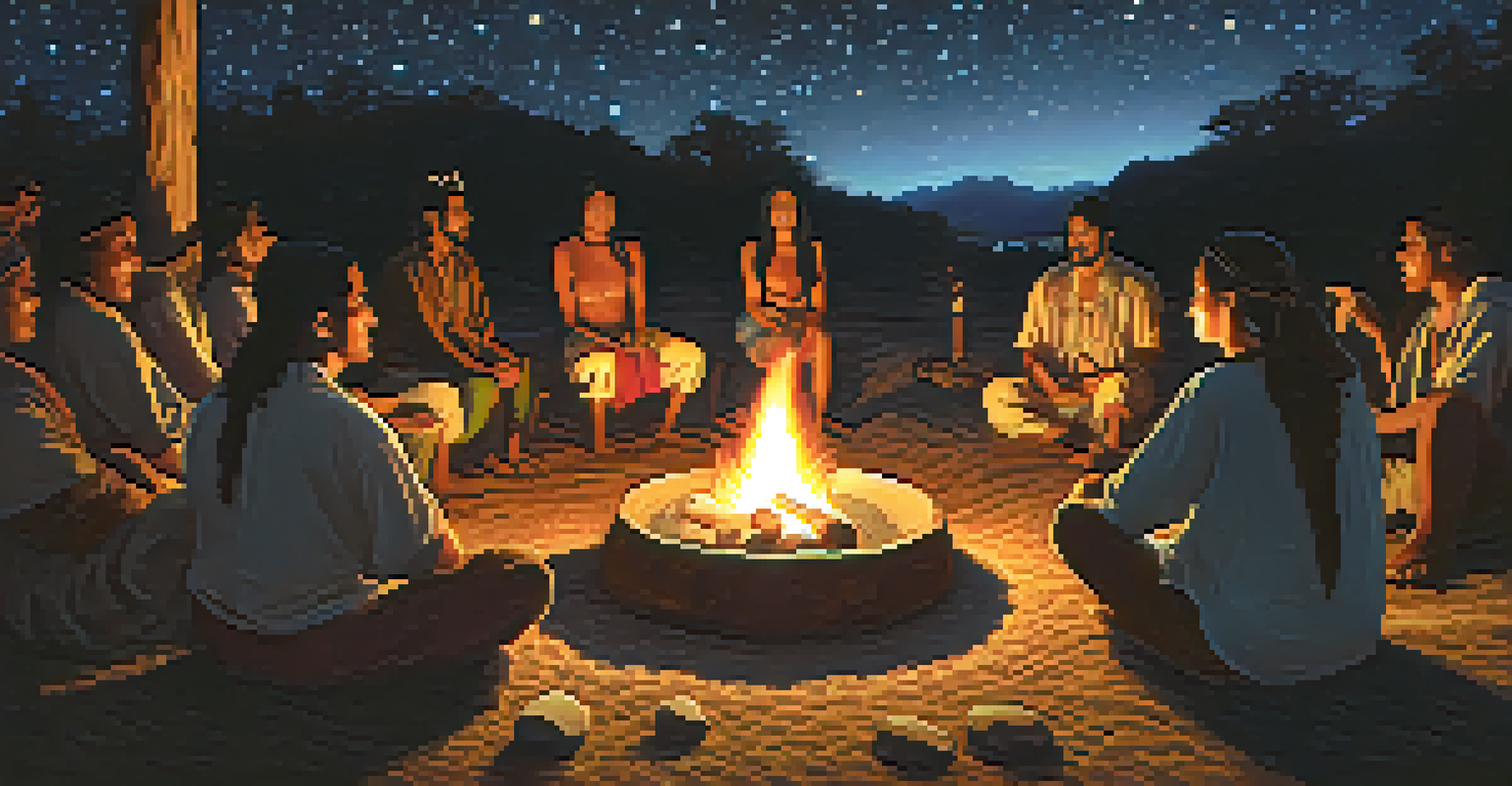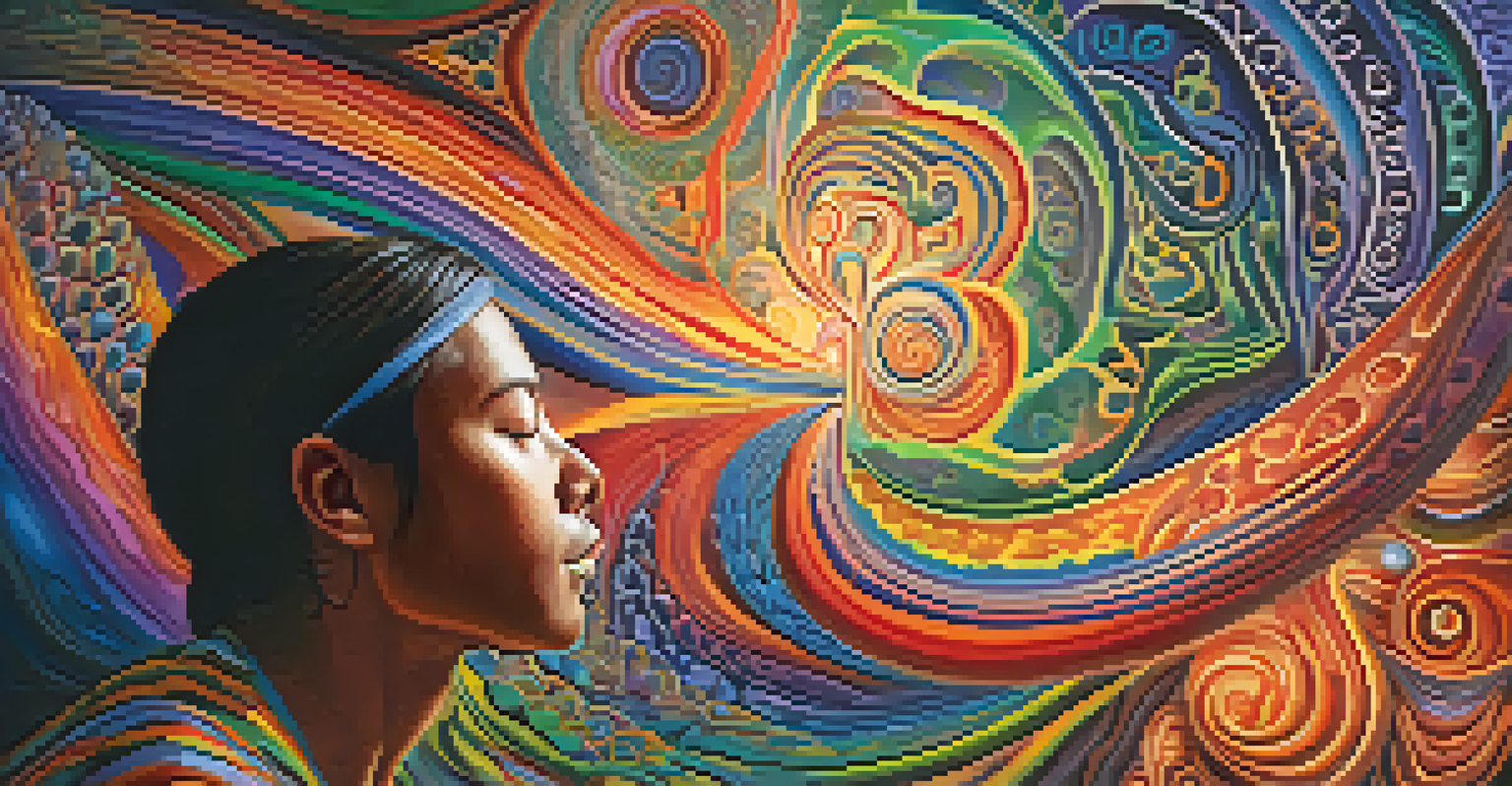Documentaries on Ayahuasca: Truth or Sensationalism?

What is Ayahuasca and Why the Buzz?
Ayahuasca is a traditional Amazonian brew made from the Banisteriopsis caapi vine and other plants. It's known for its psychoactive properties, primarily due to the compound DMT. Over the past decade, it has gained immense popularity outside of its indigenous roots, often portrayed as a path to spiritual awakening or healing.
The experience of Ayahuasca is not just about the visions; it's about the journey into oneself and the lessons learned along the way.
Documentaries about Ayahuasca have surged, showcasing everything from personal journeys to the cultural significance of the brew. This growing interest raises questions about the authenticity of these portrayals and whether they capture the essence of the experience. Some viewers wonder if they are witnessing genuine transformations or just sensationalized storytelling.
As we dive deeper into the world of Ayahuasca documentaries, it's essential to distinguish between the authentic narratives and those that may exaggerate for entertainment. Understanding this context helps us appreciate the brew's complexity while remaining critical of sensationalism.
Common Themes in Ayahuasca Documentaries
Many Ayahuasca documentaries share common themes, such as personal transformation, healing from trauma, and connecting with nature. These themes resonate with viewers seeking deeper meaning in their lives, which is part of what makes these films appealing. However, this focus on personal stories can sometimes overshadow the cultural significance of Ayahuasca in indigenous communities.

Some documentaries depict intense spiritual experiences, often highlighting dramatic visuals and emotional breakthroughs. While these moments can be profound, they also risk simplifying a complex practice that varies significantly from person to person. The danger lies in creating a one-size-fits-all narrative that doesn't reflect the diverse experiences individuals may have with Ayahuasca.
Ayahuasca's Cultural Significance
Understanding the cultural roots of Ayahuasca is crucial to appreciating its complexity and significance within indigenous communities.
Additionally, the portrayal of shamans who guide these ceremonies can vary widely, with some documentaries presenting them as wise spiritual leaders while others lean towards sensationalized stereotypes. This inconsistency can further cloud the viewer's understanding of the cultural context surrounding Ayahuasca.
The Role of Sensationalism in Storytelling
Sensationalism can be a double-edged sword in documentaries. On one hand, it captures attention and can draw in a wider audience; on the other, it can lead to misconceptions about the subject matter. When Ayahuasca is presented as a miracle cure-all, it risks trivializing the experiences of those who approach it with respect and seriousness.
We must tread carefully when engaging with practices that are deeply rooted in cultures different from our own, for respect and understanding are the foundations of true healing.
For instance, some documentaries may focus on dramatic visuals or extreme reactions to the brew, painting a picture that suggests Ayahuasca is an easy escape from life's challenges. This portrayal can mislead viewers into thinking that the journey is solely about the highs, neglecting the hard work and introspection that often accompany such experiences.
Ultimately, while sensationalism might boost viewership, it can detract from the genuine cultural and spiritual significance of Ayahuasca. A balanced approach that honors the complexity of the experience would serve both the audience and the indigenous traditions more faithfully.
Cultural Appropriation: A Critical Lens
The rise of Ayahuasca tourism and its portrayal in documentaries raises important questions about cultural appropriation. Many individuals from Western backgrounds seek out Ayahuasca experiences without fully understanding the cultural roots and significance of the brew. This can lead to a superficial engagement that strips the practice of its meaning.
Documentaries often fail to address this issue, sometimes glossing over the impact of Western interest on indigenous communities. This lack of representation can perpetuate stereotypes and diminish the voices of those who have used Ayahuasca for centuries. It's crucial to recognize the importance of honoring and respecting the cultures that have historically engaged with this sacred brew.
Impact of Sensationalism
Sensationalized portrayals of Ayahuasca can mislead viewers and undermine the genuine experiences of individuals who engage with the brew respectfully.
By critically examining how Ayahuasca is presented in documentaries, viewers can become more informed and respectful consumers of this content. Understanding the nuances of cultural appropriation allows for more meaningful engagement with Ayahuasca and the traditions surrounding it.
Personal Accounts: Truth or Exaggeration?
Personal accounts in Ayahuasca documentaries can be both enlightening and misleading. While many individuals share transformative stories that resonate deeply, it's essential to remember that these experiences are subjective. What one person perceives as a life-changing event might not hold the same meaning for another.
Moreover, the editing and storytelling techniques used in documentaries can amplify certain narratives while downplaying others. This can create a skewed perception of Ayahuasca as a universally healing experience, which may not reflect the reality for everyone involved. The power of storytelling is significant, but it also comes with the responsibility to portray a balanced view.
By engaging with a variety of personal accounts, viewers can gain a more comprehensive understanding of what to expect from an Ayahuasca experience. This balanced perspective fosters a more respectful dialogue around the brew and its effects.
Scientific Research and Ayahuasca
As interest in Ayahuasca grows, so does the body of scientific research exploring its effects. Studies have shown potential benefits, such as reduced anxiety and improved mental health, which adds credibility to some of the claims made in documentaries. However, it's important to approach these findings with caution, as research is still in its infancy.
Many documentaries highlight anecdotal evidence of Ayahuasca's healing properties, but scientific validation is crucial for understanding its true impact. While personal stories can be powerful, they may not always represent the broader population's experiences. This gap between anecdote and research underscores the need for further studies to provide a clearer picture.
Personal Accounts vs. Reality
Personal stories in Ayahuasca documentaries can vary significantly, making it essential to approach them critically to avoid a skewed perception of the experience.
Incorporating scientific insights into the narrative can enhance the understanding of Ayahuasca's complexities. This approach encourages a more informed discussion about its potential benefits and risks, allowing viewers to make educated decisions about their own experiences.
Navigating the Landscape of Ayahuasca Documentaries
With a plethora of Ayahuasca documentaries available, navigating this landscape can be overwhelming. Viewers should approach these films with a critical eye, questioning the motivations behind the storytelling and the authenticity of the experiences presented. Engaging with documentaries that include diverse perspectives can enrich the understanding of Ayahuasca.
It's also beneficial to seek out sources that emphasize the cultural context and respect the traditions surrounding Ayahuasca. This can help viewers discern between sensationalized portrayals and genuine explorations of the brew's significance. By doing so, audiences can cultivate a more nuanced appreciation for Ayahuasca and its roots.

Ultimately, educated consumption of Ayahuasca documentaries can lead to more meaningful discussions and deeper insights. By balancing entertainment with education, viewers can foster a greater understanding of this complex and fascinating subject.